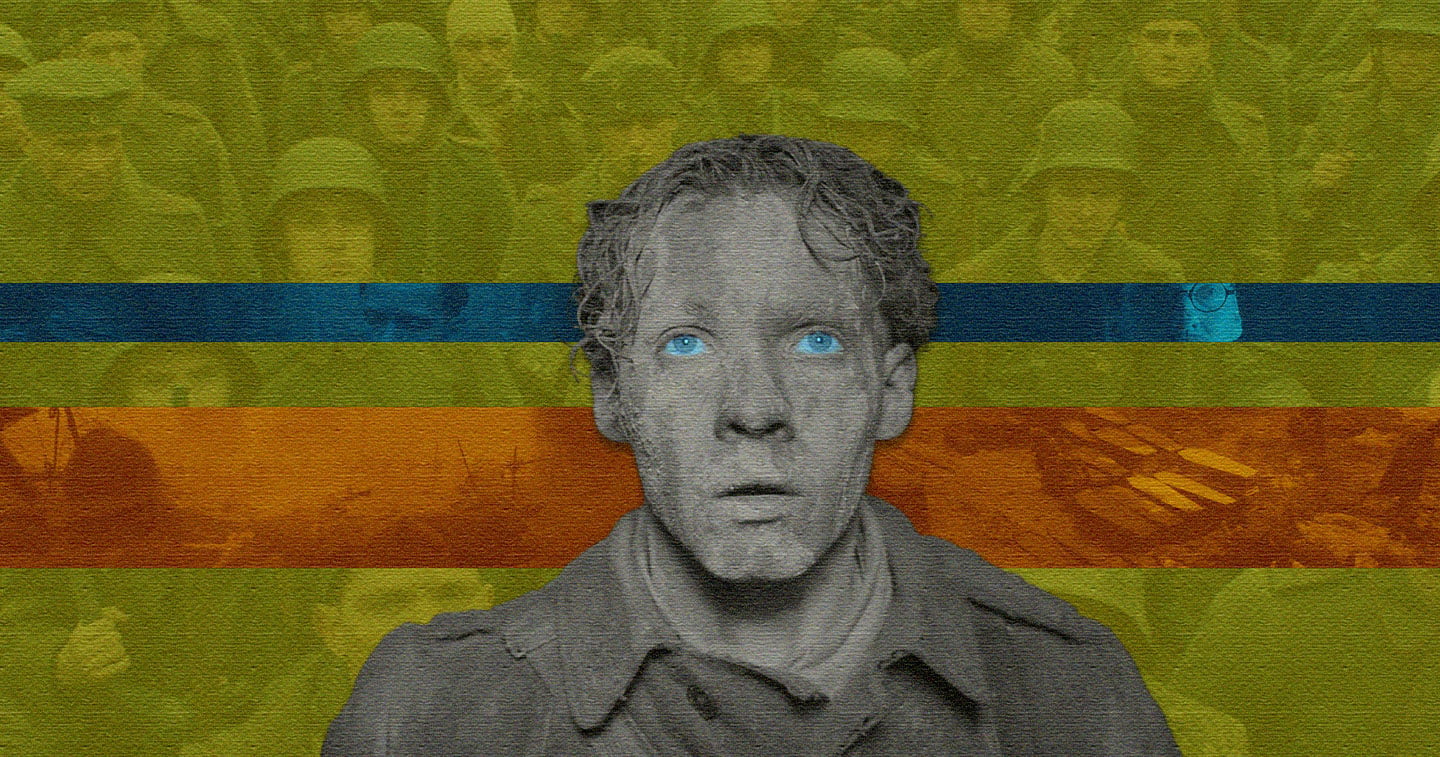MANILA, PHILIPPINES — All Quiet on the Western Front tells the story of young German soldiers sent to fight in World War I. Directed by Edward Berger, this adaptation of Erich Maria Remarque’s classic novel offers a gripping and realistic portrayal of the horrors of war and the toll it takes on the young men who are forced to participate. In this film review, Jayson Laniba details what makes All Quiet on the Western Front a must-watch for any film buff who appreciates powerful and impactful storytelling.
“It is never about the individual. It’s always about the whole!” a German official tells a group of young men joining the army. “You will prove yourselves worthy of your uniform and break through the enemy fronts in Flanders. And then, in just a few weeks, you will finally march on Paris!” The crowd of idealistic young German soldiers to-be all cheer after the patriotic speech, pumped up by the idea of returning home as heroes, only to die on the battlefield following the orders from people in higher positions who use them as dispensable pieces in a futile game of chess.
One of these men is 17-year-old Paul Bäumer (in a stirring performance by Austrian actor Felix Kammerer.) He, along with his friends Albert Kropp (Aaron Hilmer), Franz Müller (Moritz Klaus), and Ludwig Behm (Adrian Grünewald), all excitedly enlist in the Imperial German Army. The hopeful soldiers leave their town singing while marching, with joyful grins on their faces, as they join the 78 Infantry Reserve Regiment. But soon, the realities of war slap them in the face with its cruel brutality as they arrive at the trenches.
Adapted from the 1929 novel of the same name by Erich Maria Remarque, Edward Berger’s soul-crushing anti-war epic is a study on the futility of war and its inescapable horrors. It reminds me a lot of Elem Klimov’s highly acclaimed 1985 Soviet pic, Come and See, with its themes and premise. Although the two films differ in their settings (Klimov’s film follows the German occupation of Byelorussia during World War II while Berger’s is set in 1917, three years into World War I), both of them showcase the psychological damage that war inflicts on people, particularly its soldiers, who are forced to face the atrocities while trying their best to survive.
Penned by Berger, Lesley Paterson, and Ian Stokell, the film, which won the Best International Feature Film in the recently concluded 95th Academy Awards, never holds back on its visuals, shocking viewers with its sheer gruesomeness and visceral brutality. It almost plays out like a scene straight out of a horror movie. Dead bodies lie around the muddy grounds of “no man’s land.” Dismembered body parts here and there. Men getting crushed alive by tanks. Sprays of blood from gun-inflicted wounds turn the smoke red. Agonizing screams fill up the air. Volker Bertelmann, who also won the Academy Award for Best Original Score, effectively rattles the viewer and sets the tense mood with his haunting, repeated three-note riff, making for a disquieting atmosphere and overall, a harrowing experience.
Aside from its technical merits (the film also won the Academy Award for Best Production Design and Best Cinematography), what really made this film impactful is the way it handles its themes. All throughout the film, we witness how General Friedrichs, in a wickedly good turn by Devid Striesow, orders his minions to send more troops into the front lines, without even caring for the lives of these poor, innocent men, unaware that they are being sent straight to their own burial ground. These men are hungry, thirsty, exhausted, injured, afraid, deprived of sleep, and almost dying. But here, we have the general, sending his orders from his warm, cozy mansion and eating savory food, at times, throwing the food to his dog and his wine to the floor if he can’t finish it. It made me so mad seeing these men in position living comfortably every single day, while those under his power are forced to do his bidding, turning these innocent citizens into weapons themselves against their will.
These soldiers, upon realizing what they have done and the atrocities they’ve committed, are going to be haunted by these nightmarish acts, years after the war has ended. In one of the film’s most heartbreaking scenes, Paul gets trapped in a crater in no man’s land with a French soldier, who he kills to survive. He inspects the Frenchman’s belongings and finds a photo of a young child and a woman, presumably the man’s family. This war has turned him into a cold-blooded killer. And he had just killed someone else’s father, husband, or son. The wounds in Paul’s and the rest of the soldiers’ bodies may heal, but the scars left on their minds, heart, and soul remain forever.
They say that all is fair in love and war, but there’s nothing fair in a world where the ones in power simply order those below them to do their bidding, like these soldiers being sent to their deaths or surviving with a damaged mind and soul. And that, unfortunately, is bound to continue even until this day. We all cry for change, but what do we get? As long as the ones in power don’t give a damn about the people below, all we’ll get is silence, like a quiet day on the battlefronts. Silence that’s so loud, it’s deafening.
ABOUT THE WRITER

Jayson A. Laniba is a film buff with more than eight years experience of writing about movies. He has written reviews for online publications such as LionhearTV, Grimoire of Horror, and the Society of Filipino Film Reviewers (SFFR). Now, he spends most of his time blabbering about local cinema on his Instagram page, @FilmCircleReject.








